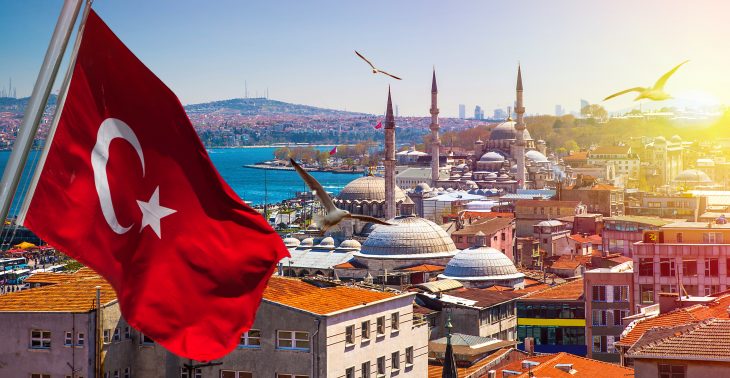
There’s more to Turkey than sharing a name with a certain feathered animal. Home to one of the world’s oldest civilizations, Turkey’s rich history played an important role in agriculture, trade, and religion. Find out how turkey changed the world with these Turkey facts.
- Istanbul is the largest city in Turkey.
- (+90) is the country’s area code.
- Turkey’s landmass is 95% in Asia and 5% in Europe.
- The total land area of Turkey is 783,562 km².
- As of 2020, Turkey’s population is close to 85 million.
- Turkey sits on the continent of Asia and Europe.
- The country has almost the same size as Texas, United States.
- Islam, Judaism, and Christianity are the main religions in the county.
- Ankara is the capital of Turkey.
- Cars in Turkey have the driver’s seat at the right side.
- Turkish Lira or TRY is the country’s currency.
- Turkey uses the Further-eastern European Time/UTC+3 for its time zone.
- Turkey as an upper-middle-income country with a GDP of $780 billion.
- Turkey is 19th place in the top 20 economies of the world.
- Since it spans more than one continent, Turkey is a transcontinental country.
- Turkey’s national animal is the gray wolf.
- Soup is always part of a traditional Turkish meal.
- Santa Claus’ origin St. Nicholas was born in Patara, Turkey.
- Turkey has a booming film industry.
- Turkey has over 10,000 plants and 80,000 animal species.
Historians believe that agriculture started in Turkey.
According to historians, agriculture began in Turkey around 11,000 years ago. There is evidence that ancient civilizations planted crops like barley and wheat in south-central Turkey.
Turkey is the 10th-biggest crop producer in the world.
Turkey’s role as a pioneer in agriculture carries over to this day. Aside from grains, Turkey is known for its cotton, sunflower, legumes, grapes, apples, dried fruits, and livestock.
Istanbul Atatürk Airport in Turkey is connected to over 250 international destinations.
From the Istanbul airport, Turkish Airlines flies up to 50 domestic destinations and 250 international destinations to 123 countries. Turkey’s geographical location at the world’s relative center makes it very accessible to fly almost anywhere.
Turkey's flag features a white star and crescent moon.
Turkey’s flag features a white star and crescent moon with a solid red background. This flag is alternatively called Ay Yιldιz (moon star) or Alsancak (red banner). The eight-pointed star was added to the flag during Constantine’s rule, possibly symbolizing the Virgin Mary.
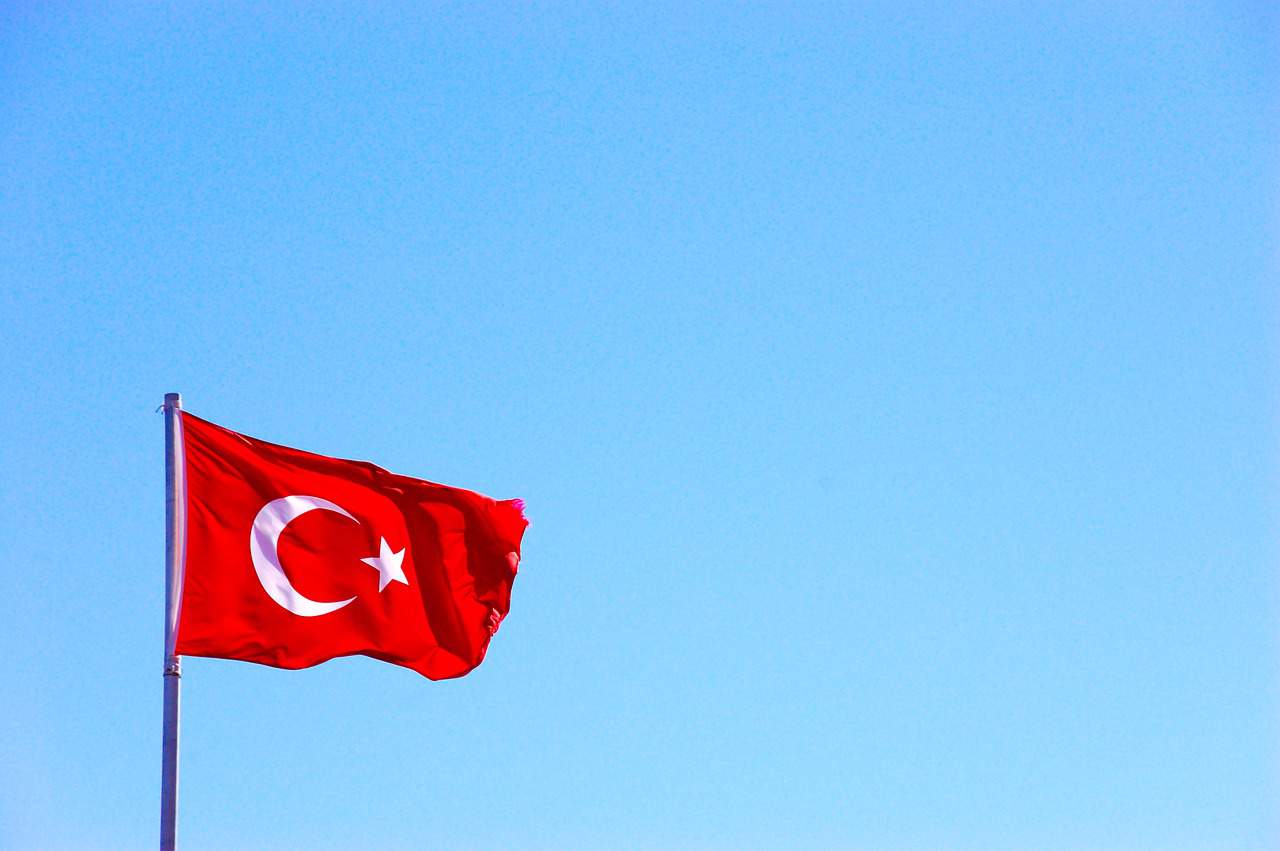
The red in Turkey's flag has a long history.
Red was chosen for the imperial standard color of the Ottomans. This Turkish empire controlled most of Southeast Europe, Western Asia, and North Africa from the 14th-20th century. Red also represented the domain of the Ottomans after the fall of Rome.
Rome fell due to Turkey.
The Ottoman Army conquered Rome’s capital of Constantinople in 1453 under the leadership of Sultan Mehmed II. With this triumphant victory, Ottomans became one of the most powerful empires in history.
Istanbul in Turkey used to be the ancient city of Constantinople.
Before Istanbul was known as Turkey’s famous city, it was the ancient metropolis of Constantinople. As a center for arts and trade, conquering Constantinople back then would’ve been like ruling the world – which the Ottoman’s somehow managed.
Turkey became a country on October 29, 1923.
Osman I founded the Ottoman Empire in 1299. By 1389 the Ottomans had conquered most of the neighboring Serbia. In the year 1453, the legendary Mehmed II defeats Constantinople, marking the end of the Byzantine Empire.
Ottomans would continue its dynasty until 1923 when the Ottoman Empire ended. With the end of the Ottoman empire, the Republic of Turkey finally became a country.
Ottomans joined World War I before it was dissolved.
Before the Ottomans were dissolved in 1923, the Ottomans joined the side of the Central Powers in WW1. The Ottomans formed secret treaty with the German Empire, more known as the ‘Ottoman–German alliance.’
2.6 million Turkish soldiers joined World War I.
During World War I, the Ottoman Empire enlisted 2.6 million soldiers. Throughout this war, 325,000 soldiers died, 400,000 injured, while more than 200,000 were imprisoned. The losses suffered by the Ottoman Empire by 1918 was pivotal to the eventual dissolution of the empire in 1921.
Turkey has one of the world’s biggest and oldest shopping malls.
The Kapalı Çarşı also known as Istanbul‘s Grand Bazaar began in 1455, 2 years after Mehmed II defeated Constantinople. To this day, it’s one of the world’s most-visited tourist spots, attracting over 90 million local and international visitors per year.
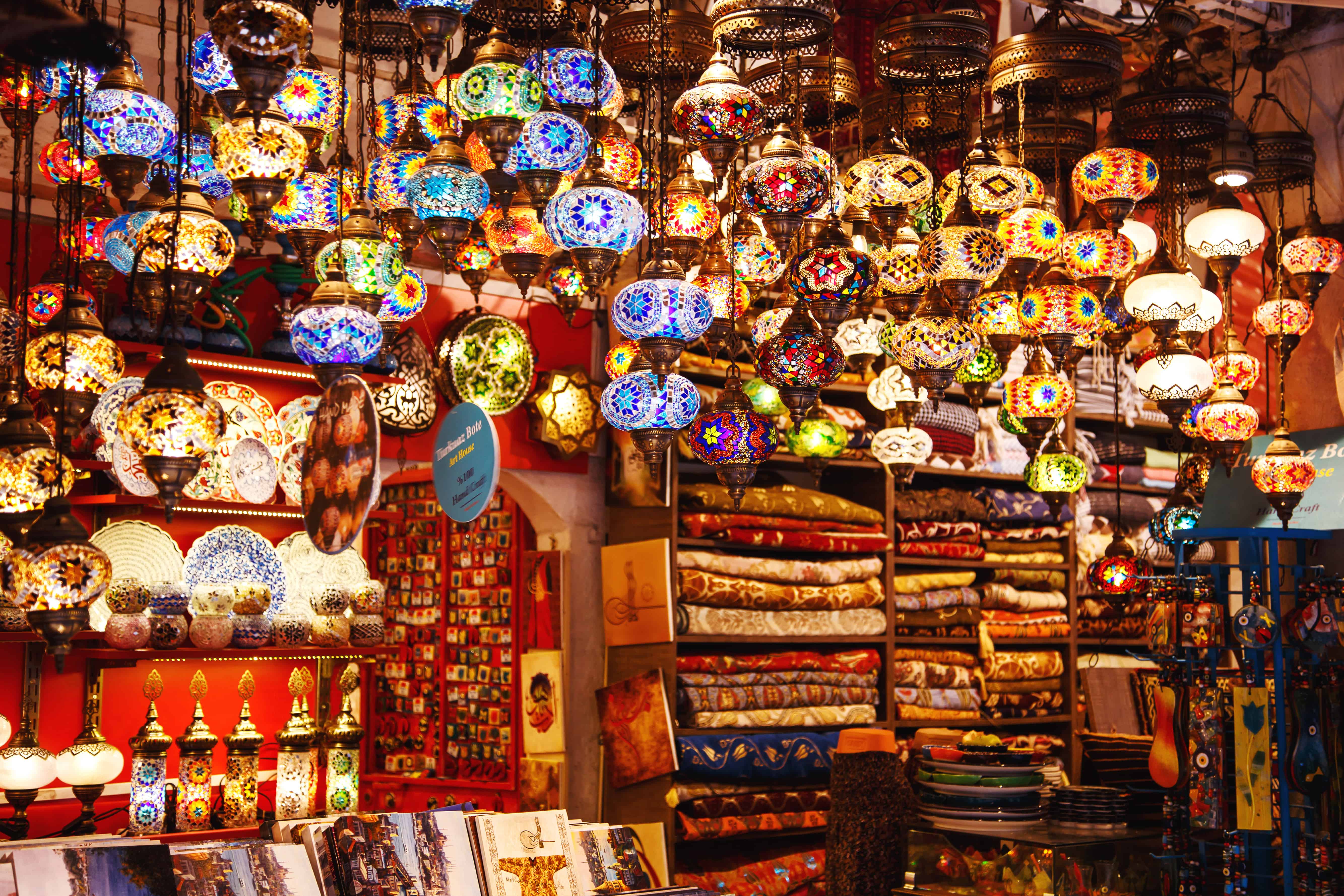
Turkey is the sixth most-visited tourist destination in the world.
Every year, around 50 million international tourists visit Turkey. The tourists take part in Turkey’s cuisine, culture, and nature. The Mediterranean climate provides the country up to 6 months of summertime in its southern parts, which makes the weather ideal for travel.
Tavuk Göğsü is Turkey's signature dessert.
Speaking of food, Turkey offers an unusual yet mouthwatering traditional dessert. Tavuk Göğsü is a combination of shredded chicken, milk, and sugar, dusted with cinnamon. This dessert was traditionally prepared for the Ottoman sultans in Topkapı palace.
İztuzu Beach in Turkey is an important breeding ground for the loggerhead sea turtle.
Also known as the Turtle Beach, İztuzu Beach is known as a breeding ground for the endangered loggerhead sea turtle. This endangered species visits between May and October to mate and lay eggs.
The Turtle Beach witnesses more than 300 dug nests each year, which the government has since prohibited to protect in light of tourism.
Turkey's highest point is a dormant volcano.
The peak of Mount Ararat is Turkey’s highest point at 5,137 meters above sea level. The mountain lies east as a dormant compound volcano.
Many believe that Mount Ararat is where Noah’s ark landed.
Interestingly, many believe that Mount Ararat is where the Biblical Noah’s ark landed. Due to this, many view the mountain peak as sacred. The mountain itself is home to different native plants and animals.
German naturalist Johann Jacob von Parrot wrote the book 'Journey to Ararat.'
Johann Jacob von Parrot was the first man recorded to reach Mount Ararat’s peak in 1829. From there, many individuals got inspired to recreate the feat, while others climbed the mountain to seek the remains of Noah’s Ark. Several climbers claimed that they found some pieces of the Ark, but these claims remain unverified.
Travelers can cross continents underground in Turkey.
The Marmaray Intercontinental Commuter Rail Line in Istanbul, Turkey runs 76.6 kilometers long. It includes a rail tunnel beneath the Bosphorus Strait and the suburban railway lines along the Sea of Marmara from Halkalı on the European side to Gebze on the Asian side.
Every year, thousands of Christians visit the Ecumenical Patriarch.
Although a majority of Turks are Islam, thousands of Christians visit Istanbul for the Ecumenical Patriarch. It is one of the 14-16 autocephalous churches in the world.
The country uses more than 30 ethnic languages.
Turkish may be the official language of Turkey, but over 30 ethnic languages are still used to this day. Moreover, the most common ethnic languages spoken in Turkey are Zazaki, Kurmanji, Arabic, and of course Turkish with more than 70% users.
Istanbul is the only city on earth on two continents.
Of Turkey’s landmass, 95% lies in Asia while 5% lies in Europe. Due to its location, Istanbul is divided into two continents. Therefore, this makes Istanbul the only city on Earth built on two continents.
Turkey houses 2 of the Seven Wonders of the Ancient World.
The Temple of Artemis in Ephesus is a remnant of Ancient Greek civilization dedicated to the ancient goddess Artemis. Another historical site is the Mausoleum of Halicarnassus built between 353 and 350 BC.
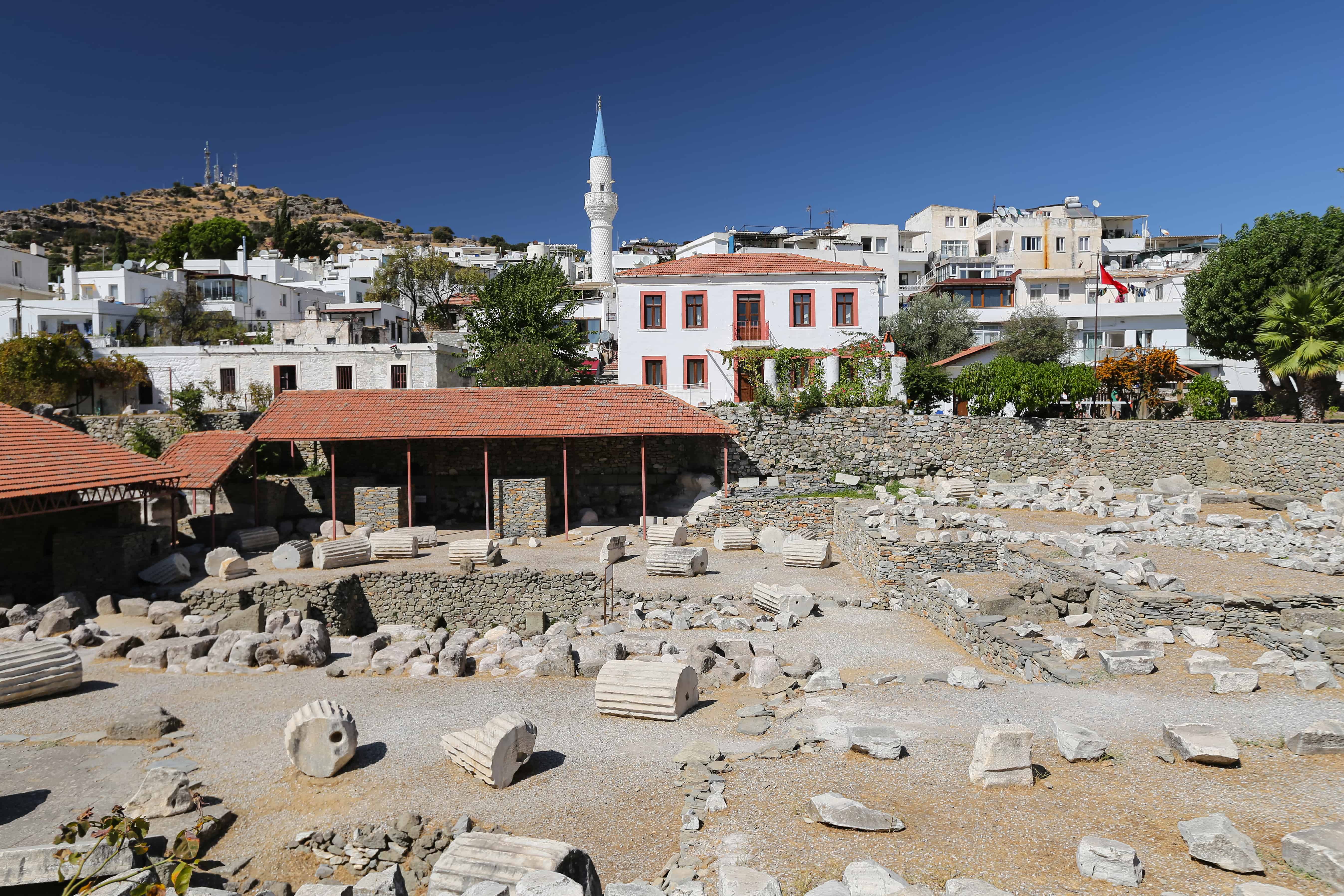
Football is the most popular sport in Turkey.
Football is Turkey’s most popular sport. Aside from soccer, Turks are also into sports such as basketball, track-and-field, handball, and wrestling.
The "Bull of the Bosphorus" represented Turkey in football more than 100 times.
Hakan Şükür, fondly nicknamed “Bull of the Bosphorus” played as a striker for Turkey’s professional football team for over a hundred matches. Born in Sapanca, Turkey on September 1, 1971 scored 51 goals throughout his career, making the “Bull of the Bosphorus” Turkey’s top goalscorer. Upon his retirement, Şükür ranked and 19th overall in the world for his scores.
More than 10 Turkish basketball players made it in the NBA.
Among the famous NBA players from Turkey are: Hedo Türkoğlu, Ömer Aşık, Ersan İlyasova, Enes Kanter, Mehmet Okur, Furkan Aldemir, Semih Erden, Furkan Korkmaz, Ibrahim Kutluay, Shane Larkin, Cedi Osman, and Mirsad Türkcan.
Oil wrestling is Turkey's national sport.
Also known as grease wrestling, oil wrestling is the country’s national sport. As its name suggests, two contenders will wrestle each other while doused in olive oil. However, unlike traditional wrestling, oil wrestling competitions can be won by delivering an effective hold to a pair of loose-fitting leather trousers worn by the wrestlers.
The Europeans named the Ottoman Empire 'Turkey.'
Contrary to what you may think, Turkey wasn’t named after the bird. Instead, the Ottoman Empire renamed Constantinople as Turkey as a historical reference.
Similar to how they conquered Constantinople, the Turkic people of Central Asia took control of Anatolia and called themselves Turks. From there, the Ottoman Empire derived the name Turkey.
The Turkish delight inspired the jelly bean.
The Turkish delight or Lokum is a confectionery based on a gel of starch and sugar. The chewy cornstarch-thickened sweet was produced in Istanbul in 1777.
Furthermore, the Turkish delight or Lokum reached the United States in the late 19th century, which then inspired jelly bean production.
Leonardo da Vinci proposed a plan to construct a bridge in Turkey.
Da Vinci proposed a plan to construct a bridge across the Bosporus Straits in 1503. However, the construction only took place 498 years later. The bridge was named the Galata Bridge in 2001.
Istanbul is often mistaken as the capital of Turkey.
Because of Istanbul’s spot in the world’s top 10 global cities, it’s often mistaken as the capital of Turkey. However, that title officially belongs to Ankara.
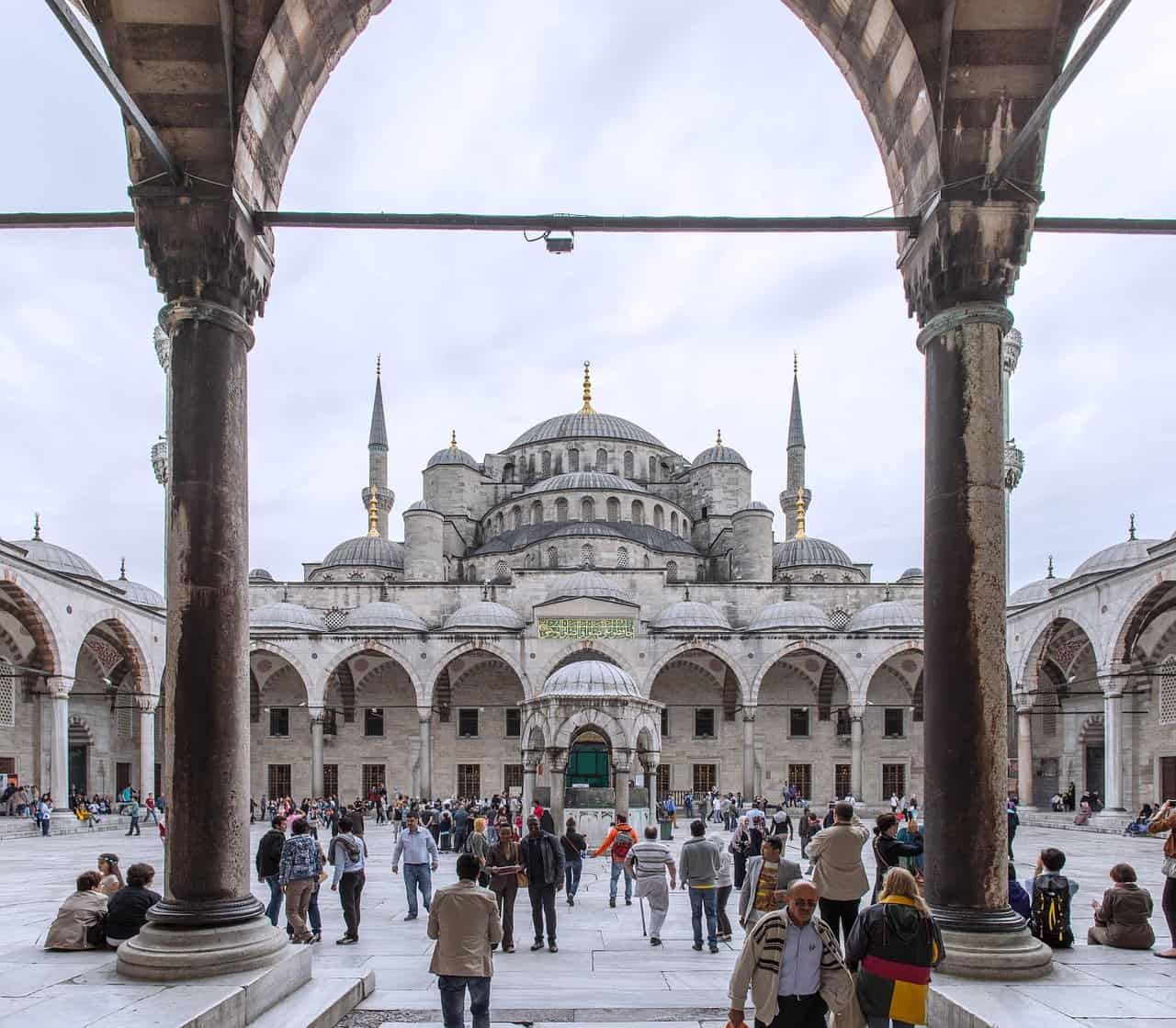
Istanbul is the former capital of Turkey.
After they took it from the Romans, the Ottomans made Constantinople the capital of the country. However, Ankara became the capital after the the Ottoman Empire fell. The government preferred Ankara as the new capital and changed its name to Istanbul following the Turkish War of Independence in 1923.
The world’s first temple is in Turkey.
The stones found at Göbekli Tepe are the remains of the world’s first temple and is one of the most significant archaeological sites ever discovered. Carbon dating reveals that around 45 stones trace as far back as 13,000 years.
"Salting" is one of the many customs in Turkey.
Salting is Turkey’s custom of protecting a newborn baby. This custom requires one to rub salt all over a baby’s body, under the belief that it will boost the baby’s resistance to harmful elements.
Putting a tortoise under a baby’s pillow at night is an old superstition in Turkey.
Although the majority doesn’t practice it anymore, some Turks believe that putting a tortoise under a baby’s pillow at night will protect the infant.
Mustafa Kemal Ataturk is the Father of the Turks.
Mustafa Kemal Ataturk lifted the alcohol ban in the country in 1921. He shifted the rest day from Friday to Sunday, and introduced the Turkish alphabet from Arabic letters to Roman.
He also for prayers to be in Turkish rather than Arabic, as well as adopting the Gregorian calendar instead of the Islamic.
The Father of the Turks was not born in Turkey.
Mustafa Kemal Ataturk was not born in Turkey, but in Greece in the year 1881. However, his father and his mothers shares ancestry with the Turks of Anatolia.
Ottoman Imperial Harem was the representation of the Sultan's power.
During the reign of the Ottoman Sultans, the palace had a harem of 1,000 women. The harem was the representation of the Sultan’s power – the possession of women and slaves signified wealth, power, and sexual valor.
Tulips are Turkey's national flowers.
The Turkish introduced tulips to Europe during the 17th Century. There is no surprise why tulips are the national flower of the country, since it’s native to Turkey. The term “tulip” came from the Turkish word for ‘tülbend’, meaning gauze or muslin.
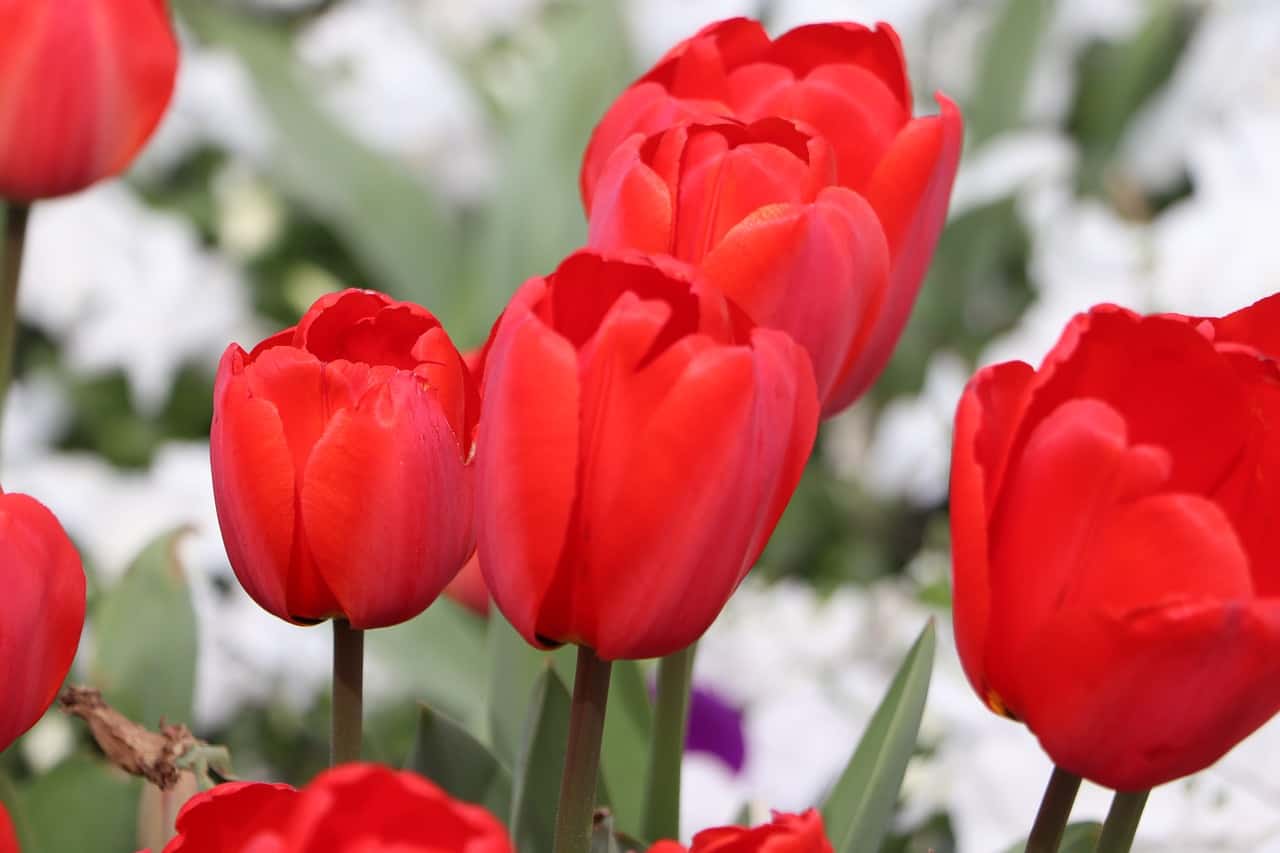
Turkey's average life expectancy has been increasing since 2017.
As of 2019-2020 the life expectancy for the Turks is 77.54 years. It increased by 0.29% from 2018. In detail, the life expectancy in Turkey in 2018 was 77.31 years – which was also a 0.45% increase from the year 2017.
Turkey holds the Mevlana Whirling Dervishes Festival from Dec 10 to 17.
Every year, Konya, Turkey celebrates the Mevlana Whirling Dervishes Festival from Dec 10 to 17. This religious festival honors the union of Mevlana Jelaluddin Rumi, a 13th-century Persian poet and a revered Sufi saint with Allah.
The Mesir Paste Festival is based on a "miracle" candy.
Mesir Paste Festival of Manisa, Turkey, celebrates the recovery of Hafsa Sultan through a confectionery. Hafsa Sultan was the wife of Selim I and the mother of Suleyman the Magnificent.
She was reportedly healed of an illness through Mesir paste, a traditional Turkish sweet believed to have therapeutic effects. From there, Hafsa ordered the public distribution of the Mesir Paste, which carried over to the festival celebrated today.
The early versions of the Mesir paste were spicy, not sweet.
Mesir paste consists of over 40 herbs and spices. The 500-year paste recipe continues to be popular throughout Turkey until this day with only a minor difference – the paste is much sweeter today.
Turkey is the world's biggest producer of hazelnuts.
Turkey produces 70% of all the hazelnut in the world market, amounting to $2.8 billion in the global sector. Trabzon, Turkey grows more than 44% of Turkey’s entire hazelnut crop.
The Ferrero SpA Company is Turkey's biggest market.
The famous chocolate manufacturer Ferrero SpA, who also owns Nutella, Kinder, and Ferrero Rocher is buys the most hazelnuts from Turkey.
The Turkish didn't use surnames until the year 1934.
Most Turkish people didn’t have surnames until the law required it in 1934. The most popular last names in Turkey during those early days were: Yılmaz, Kaya, Demir, Şahin, and Çelik.
Turkey is notorious for impunity.
Turkey has imprisoned many journalists more than any other country in the world. The year 2016 was one of the most challenging years for journalists in Turkey as it jailed over 200 individuals. Apart from Turkey, other countries like Saudi Arabia, China, and Egypt also have a bad track record in terms of journalists.
Turkey has the most number of mosques in the world.
With over 82,000 mosques and counting, Turkey leads the world for the most number of mosques per capita. Istanbul alone has over 3,100 mosques while the United States as a whole only has around 2,000.
Coffee was once reserved for royalty in Turkey.
Turkish coffee was introduced into the country in 1540. The Turks used mortars to finely grind the coffee to brew it with Ibrik. The coffee was an instant hit in the palace thus it also became an essential part of Turkish history and culture.
According to Turkish tradition, life starts and ends with sweets.
In Turkey, it’s a common tradition to eat sweets such as halva for major life events. When a mother gives birth, she’ll receive sweets, and a baby is traditionally welcomed with halva at birth. On the other hand, halva is also served in funerals. Talk about full circle.
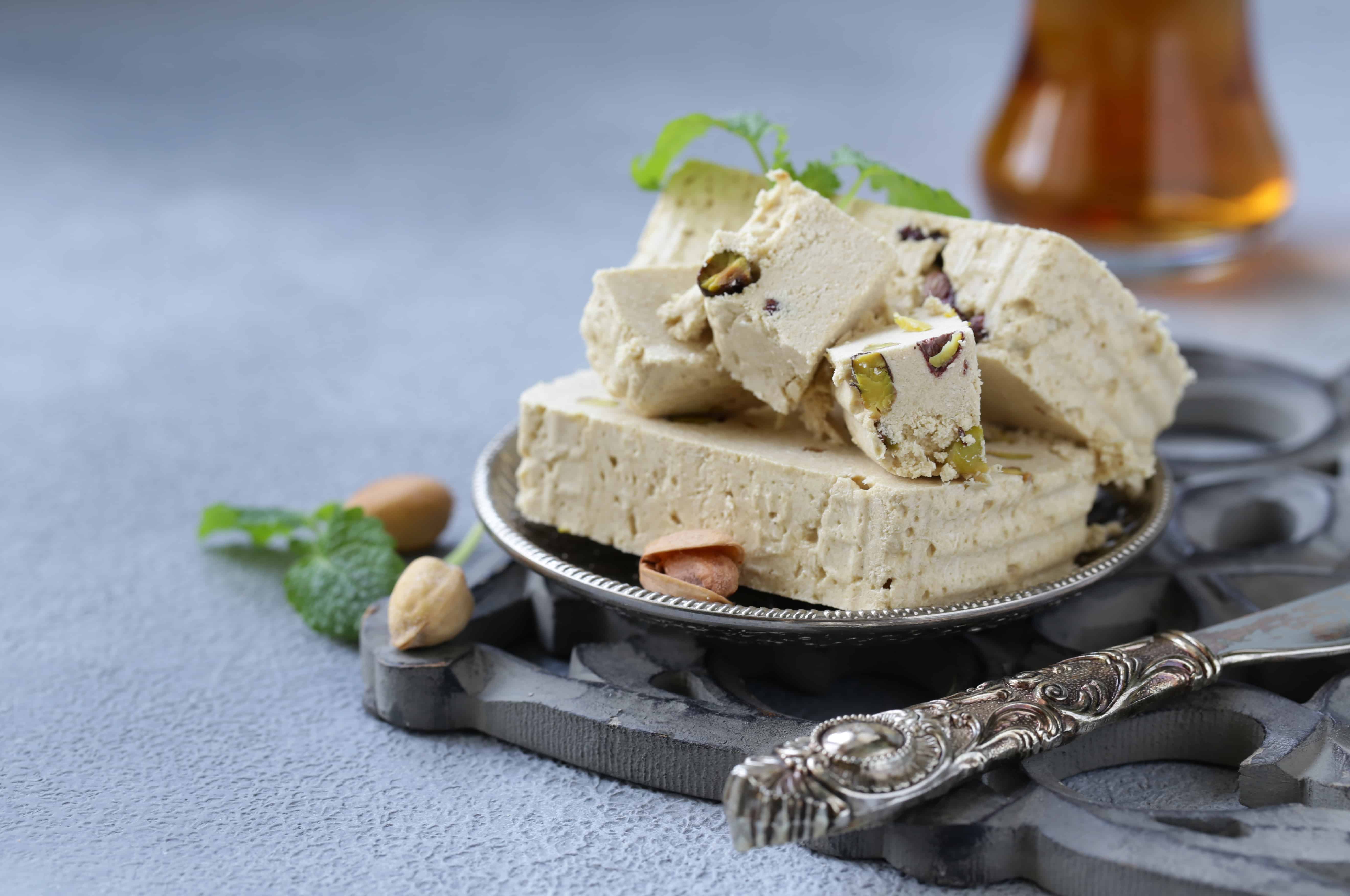
Turkey consumes the most tea in the world.
If you think about the country that drinks the most tea, the immediate choice would either be Britain or China. However, Turkey leads the world in drinking the most tea of any nation.
Most Turks drink an average of 5 to 10 cups of tea a day. The country has the highest per-capita consumption of tea in the world at approximately 7 lbs for each person in a year. A whopping 96% of the population drinks tea every single day.
Turkey is the 5th highest producer of tea in the world.
Turkey may drink the most tea in the world, but they don’t supply most of it. Caykur is the most widely used brand of tea in the country. The northeast region of Rize is Turkey’s tea capital. The province’s mild climate makes its green mountainsides ideal for tea plantations.
Turkey has been producing wine since 4000 B.C.
Turkey has been producing wine for almost 6,000 years. The Museum of Anatolian Civilizations in Ankara showcases the early wine industry from 4,000 B.C.
Turkey has a rich ecology.
Turkey boasts a diverse ecology of 3,500 native plant species. Turkey also has 5 unique mammal species, more than 10 reptile species, and over 50 freshwater fish species that only exist in Turkey.
Turkey is the fourth-largest producer of tomatoes in the world.
After China, India, and the U.S., Turkey is the world’s fourth-largest producer of tomatoes. Around 30% of Turkey’s tomato produce is processed into ketchup, tomato paste, juice, puree, and diced tomatoes.
The government of Turkey promotes sports.
Only a few countries such as Turkey have a direct constitution for sports. Article 59 of their Constitution states the government’s responsibility to promote sports and support athletes for the public’s physical and mental health.
'The Pocket of Hercules' won numerous Olympic gold medals for Turkey.
Naim Süleymanoğlu became an Olympic Champion in weightlifting numerous times. Nicknamed as “The Pocket Hercules,” he brought home Olympic Golds for weightlifting in 1988, 1992, and 1996.
Turkey first joined the Olympic Games in the year 1908.
In total, Turkey already won 91 medals, consisting of 39 golds, 24 silvers, and 28 bronzes.
A 7.4 magnitude earthquake once hit Marmara in Turkey in 1999.
Over the last 30 years, ten strong earthquakes took more than 20,000 lives in Turkey. The most catastrophic in the modern era was a 7.4-magnitude earthquake, which cracked the western Marmara region in 1999, resulting in over 15,000 deaths.
Turkey has one of the youngest populations in the world.
Turks are among the world’s youngest population. The country’s median age is 31.5 years. About 23% is under the age of 14, while half of the total population is under 30.
The Evil Eye amulet is one of the most popular souvenirs in Turkey.
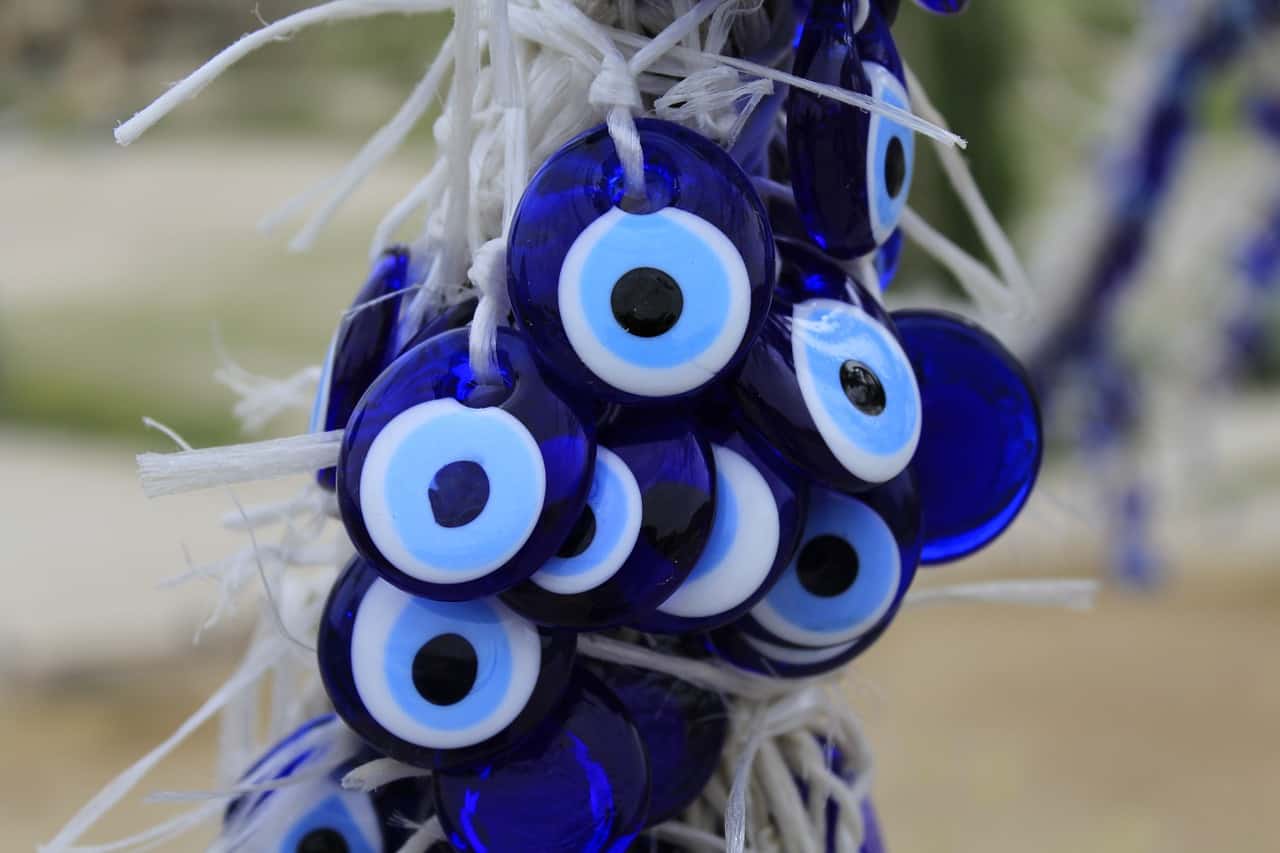
Locally known as the Nazar Boncuğu, old Turkish customs suggest that this amulet protects the bearer against harmful spirits. Dating back to 3,000 years ago, traces of this amulet have been found in most former Ottoman territories.
Was this page helpful?
Our commitment to delivering trustworthy and engaging content is at the heart of what we do. Each fact on our site is contributed by real users like you, bringing a wealth of diverse insights and information. To ensure the highest standards of accuracy and reliability, our dedicated editors meticulously review each submission. This process guarantees that the facts we share are not only fascinating but also credible. Trust in our commitment to quality and authenticity as you explore and learn with us.
